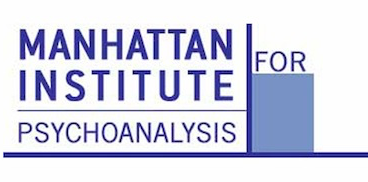Justine Duhr and Blair Casdin, co-editors of Analysis Now, recently chatted with SCOOP co-chair Tricia Brock, MFA, about where the group has been, what it’s up to now, and where it’s headed. Without further ado, here’s the scoop on SCOOP!
What is SCOOP? What does it do? Why do we need it?
SCOOP is MIP’s Student Cooperative which aims to put candidates’ needs first and foremost. Participating in SCOOP is an easy way for early as well as advanced candidates to drop in on central debates, find out issues that need to be addressed by leadership, brainstorm ideas on how to solve problems, or just fraternize with other candidates socially. Part training watchdog, part brainstorming workshop, SCOOP is whatever candidates make of it.
Before SCOOP existed there was no direct link from candidates to formal institute leadership, but now students have a place to sound their voices, where their needs—no matter how big or small—are taken seriously, and where they are entitled to clear and formal responses from the executive committee (comprised of the heads of all committees and the current and former institute co-directors).
We need it because the more candidates participate, the more their concerns will be addressed and gaps in training will be improved upon, tightening the operations of the institute overall.
What changes have you seen at MIP since SCOOP started?
Generally speaking, there is a steadier flow of communication between students and institute leadership and less of an “us versus them” mentality. Specifically, we now have updated manuals with clearer, more accurate language. We have seen livelier and more invigorating 11th Week seminars with greater turnouts and more robust participation. We have also noticed fewer people dropping out of training along the way. Newer candidates seem to suffer less from the classic issue of converting treatments from single weekly sessions to multiple times per week, and this may be due in part to improvements in training resulting from a more reliable flow of communication between candidates and faculty. We have also become a proud resource at the institute for helpful suggestions, such as the initiative to link MIP with Amazon Smile for passive income.
What is your favorite part of co-chairing SCOOP? Your least favorite part?
Engaging with candidates directly and getting to know them individually and addressing their legitimate concerns and frustrations has been by far my favorite aspect of co-chairing SCOOP. Also the response of institute leadership, which has demonstrated the utmost respect for and consideration of candidates’ issues, has been hugely gratifying and has invested me personally even more in institute life. It feels good to participate in a group that serves the needs of candidates, and we are awarded immense satisfaction when the seemingly impossible gets accomplished.
My least favorite part of the work is the necessary paper shuffling of gathering accurate detailed information, drafting correspondence, getting to the right people to ask the right questions, and reporting back to candidates all in a predictable and timely manner, all of which can be exhausting—and it’s tricky to hit that sweet spot between reaching out to candidates too often or too little—but it’s all for a good cause, so somehow we always seem to find the energy.
What’s been the most challenging part of your job as co-chair?
Rounding up candidates to participate has been disheartening at its worst. People have lives, families, and their training, not to mention jobs and the quotidian stress of living and commuting in our fair city. There are the trusted few who regularly show up and roll up their sleeves, without whom we wouldn’t be able to function, but they can’t do it all every time.
SCOOP isn’t just a passive sounding board for complaints, but an opportunity to find creative ways to solve problems and actively be the change that we want to see happen. Not everyone knows that psychoanalytic training institutes are historically volunteer organizations but it’s paramount that we are mindful of that and participate as much as we can to keep our institute community vibrant. After all, we candidates are the future of psychoanalysis.
Where is SCOOP headed? What do you see in its future?
SCOOP is particularly invested in continued efforts toward ensuring that LQP candidates are more adequately prepared for the licensing process than our first classes were, seeing that LQP candidacy is on the rise and likely to grow much, much more.
This is the perfect opportunity to announce that we will hand off the baton to three new co-chairs next year to help spread out the workload and allow us time to run other relays around the institute. Second-year year candidate Kathryn Moreno, and third-year candidates Jahn Mars D’Augustine and Meghan Bernhardt will work in tandem the next academic year co-chairing SCOOP. Selected for their commitment to the institute and their diversity of voices, each personality is distinct with special attributes destined for leadership. We can’t wait to see what SCOOP holds in store.
Tricia Brock, MFA, is a fifth-year LQP candidate and co-chair of SCOOP along with third-year candidate Constance Morrill, LCSW.
If you enjoyed this post, we recommend:
Spotlight on the Co-Directors: Veronica Csillag and Steve Kirschner
Like Waltzing Around in Underpants: Living the Dream of Analytic Candidacy
Psychoanalytic Training with a Side of Pasta








2 Comments
Leave your reply.